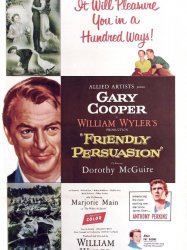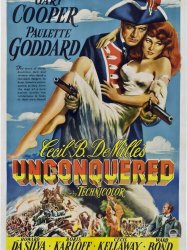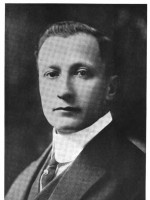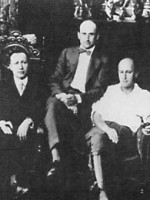Gary Cooper is a Actor, Director, Scriptwriter, Producer and Thanks American born on 7 may 1901 at Helena (USA)

Gary Cooper (born Frank James Cooper; May 7, 1901 – May 13, 1961) was an American film actor known for his natural, authentic, and understated acting style and screen performances. His career spanned thirty-five years, from 1925 to 1960, and included leading roles in eighty-four feature films. He was a major movie star from the end of the silent film era through the end of the golden age of Classical Hollywood. His screen persona appealed strongly to both men and women, and his range of performances included roles in most major movie genres. Cooper's ability to project his own personality onto the characters he played contributed to his appearing natural and authentic on screen. The screen persona he sustained throughout his career represented the ideal American hero.
Cooper began his career as a film extra and stunt rider and soon landed acting roles. After establishing himself as a Western hero in his early silent films, Cooper became a movie star in 1929 with his first sound picture, The Virginian. In the early 1930s, he expanded his heroic image to include more cautious characters in adventure films and dramas such as A Farewell to Arms (1932) and The Lives of a Bengal Lancer (1935). During the height of his career, Cooper portrayed a new type of hero—a champion of the common man—in films such as Mr. Deeds Goes to Town (1936), Meet John Doe (1941), Sergeant York (1941), The Pride of the Yankees (1942), and For Whom the Bell Tolls (1943). In the post-war years, he portrayed more mature characters at odds with the world in films such as The Fountainhead (1949) and High Noon (1952). In his final films, Cooper played non-violent characters searching for redemption in films such as Friendly Persuasion (1956) and Man of the West (1958).
Cooper had romantic relationships early in his career with several leading actresses, including Clara Bow and Lupe Vélez. He married New York debutante Veronica Balfe in 1933, and the couple had one daughter. Their marriage was interrupted by a three-year separation precipitated by Cooper's love affair with Patricia Neal. Cooper's twenty-year friendship with Ernest Hemingway was grounded in their mutual love for the outdoors. Cooper's other close friends included Howard Hawks, Joel McCrea, and James Stewart. Cooper received five Academy Award nominations for Best Actor, winning twice, for Sergeant York and High Noon. He also received an Academy Honorary Award for his career achievements in 1961. He was one of the top ten film personalities for twenty-three consecutive years, and was one of the top money-making stars for eighteen years. The American Film Institute (AFI) ranked Cooper eleventh on its list of the twenty five greatest male stars of classic Hollywood cinema.
Cooper was formally introduced to his future wife, twenty-year-old New York debutante Veronica Balfe, on Easter Sunday 1933 at a party given by her uncle, art director Cedric Gibbons. Called "Rocky" by her family and friends, she grew up on Park Avenue and attended finishing schools. Her stepfather was Wall Street tycoon Paul Shields. Cooper and Rocky were quietly married at her parents' Park Avenue residence on December 15, 1933. According to his friends, the marriage had a positive impact on Cooper, who turned away from past indiscretions and took control of his life. Athletic and a lover of the outdoors, Rocky shared many of Cooper's interests, including riding, skiing, and skeet-shooting. She organized their social life, and her wealth and social connections provided Cooper access to New York high society. Cooper and his wife owned homes in the Los Angeles area in Encino (1933–36), Brentwood (1936–53), and Holmby Hills (1954–61), and owned a vacation home in Aspen, Colorado (1949–53).
Cooper's daughter Maria Veronica Cooper was born on September 15, 1937. By all accounts, he was a patient and affectionate father, teaching Maria to ride a bicycle, play tennis, ski, and ride horses. Sharing many of her parents' interests, she accompanied them on their travels and was often photographed with them. Like her father, she developed a love for art and drawing. As a family they vacationed together in Sun Valley, Idaho, spent time at Rocky's parents' country house in Southampton, New York, and took frequent trips to Europe. Cooper and Rocky were legally separated on May 16, 1951, when Cooper moved out of their home. For over two years, they maintained a fragile and uneasy family life with their daughter. Cooper moved back into their home in November 1953, and their formal reconciliation occurred in February 1954.
Romantic relationships
Prior to his marriage, Cooper had a series of romantic relationships with leading actresses, beginning in 1927 with Clara Bow, who advanced his career by helping him get one of his first leading roles in Children of Divorce. Bow was also responsible for getting Cooper a role in Wings, which generated an enormous amount of fan mail for the young actor. In 1928, he had a relationship with another experienced actress, Evelyn Brent, whom he met while filming Beau Sabreur. In 1929, while filming The Wolf Song, Cooper began an intense affair with Lupe Vélez, which was the most important romance of his early life. During their two years together, Cooper also had brief affairs with Marlene Dietrich while filming Morocco in 1930 and with Carole Lombard while making I Take This Woman in 1931. During his year abroad in 1931–32, Cooper had an affair with the married Countess Dorothy di Frasso, while staying at her Villa Madama in Rome.
After he was married in December 1933, Cooper remained faithful to his wife until the summer of 1942, when he began an affair with Ingrid Bergman during the production of For Whom the Bell Tolls. Their relationship lasted through the completion of filming Saratoga Trunk in June 1943. In 1948, after finishing work on The Fountainhead, Cooper began an affair with actress Patricia Neal, his co-star. At first they kept their affair discreet, but eventually it became an open secret in Hollywood, and Cooper's wife confronted him with the rumors, which he admitted were true. He also confessed that he was in love with Neal, and continued to see her. Cooper and his wife were legally separated in May 1951, but he did not seek a divorce. Neal ended their relationship in late December 1951. During his three-year separation from his wife, Cooper had affairs with Grace Kelly, Lorraine Chanel, and Gisèle Pascal.
Friendships, interests, and character
Cooper's twenty-year friendship with Ernest Hemingway began at Sun Valley in October 1940. The previous year, Hemingway drew upon Cooper's image when he created the character of Robert Jordan for the novel For Whom the Bell Tolls. The two shared a passion for the outdoors, and for years they hunted duck and pheasant, and skied together in Sun Valley. Both men admired the work of Rudyard Kipling—Cooper kept a copy of the poem "If—" in his dressing room—and retained as adults Kipling's sense of boyish adventure. As well as admiring Cooper's hunting skills and knowledge of the outdoors, Hemingway believed his character matched his screen persona, once telling a friend, "If you made up a character like Coop, nobody would believe it. He's just too good to be true." They saw each other often, and their friendship remained strong through the years.
"For me the really satisfying things I do are offered me, free, for nothing. Ever go out in the fall and do a little hunting? See the frost on the grass and the leaves turning? Spend a day in the hills alone, or with good companions? Watch a sunset and a moonrise? Notice a bird in the wind? A stream in the woods, a storm at sea, cross the country by train, and catch a glimpse of something beautiful in the desert, or the farmlands? Free to everybody ..."
Gary Cooper
Cooper's social life generally centered on sports, outdoor activities, and dinner parties with his family and friends from the film industry, including directors Henry Hathaway, Howard Hawks, William Wellman, and Fred Zinnemann, and actors Joel McCrea, James Stewart, Barbara Stanwyck, and Robert Taylor. As well as hunting, Cooper enjoyed riding, fishing, skiing, and later in life, scuba diving. He never abandoned his early love for art and drawing, and over the years, he and his wife acquired a private collection of modern paintings, including works by Pierre-Auguste Renoir, Paul Gauguin, and Georgia O'Keeffe. Cooper owned several works by Pablo Picasso, whom he met in 1956. Cooper had a lifelong passion for automobiles, with a collection that included a 1930 Duesenberg.
Cooper was naturally reserved and introspective, and loved the solitude of outdoor activities. Not unlike his screen persona, his communication style frequently consisted of long silences with an occasional "yup" and "shucks". He once said, "If others have more interesting things to say than I have, I keep quiet." According to his friends, Cooper could also be an articulate, well-informed conversationalist on topics ranging from horses, guns, and Western history to film production, sports cars, and modern art. He was modest and unpretentious, frequently downplaying his acting abilities and career accomplishments. His friends and colleagues described him as charming, well-mannered, and thoughtful, with a lively boyish sense of humor. Cooper maintained a sense of propriety throughout his career and never misused his movie star status—never sought special treatment or refused to work with a director or leading lady. His close friend Joel McCrea recalled, "Coop never fought, he never got mad, he never told anybody off that I know of; everybody that worked with him liked him."
Political views
Cooper was a conservative Republican like his father, and voted for Calvin Coolidge in 1924, Herbert Hoover in 1928 and 1932, and campaigned for Wendell Willkie in 1940. When Franklin D. Roosevelt ran for an unprecedented fourth presidential term in 1944, Cooper campaigned for Thomas E. Dewey and criticized Roosevelt for being dishonest and adopting "foreign" ideas. In a radio address that he paid for himself just prior to the election, Cooper said, "I disagree with the New Deal belief that the America all of us love is old and worn-out and finished—and has to borrow foreign notions that don't even seem to work any too well where they come from ... Our country is a young country that just has to make up its mind to be itself again." He also attended a Republican rally at the Los Angeles Memorial Coliseum that drew 93,000 Dewey supporters.
Cooper was one of the founding members of the Motion Picture Alliance for the Preservation of American Ideals, a conservative organization dedicated, according to its statement of principles, to preserving the "American way of life" and opposing communism and fascism. The organization—whose membership included Walt Disney, Clark Gable, Ronald Reagan, Barbara Stanwyck, and John Wayne—pressured the United States Congress to investigate communist influence in the motion picture industry. On October 23, 1947, Cooper appeared before the House Un-American Activities Committee (HUAC) and was asked if he had observed any "communistic influence" in Hollywood. Cooper recounted statements he'd heard suggesting that the Constitution was out of date and that Congress was an unnecessary institution—comments that Cooper said he found to be "very un-American". He also testified that he had rejected several scripts because he thought they were "tinged with communist ideas". Unlike some other witnesses, Cooper did not name any individuals during his testimony.
Religion
Cooper was baptized in the Anglican Church in December 1911 in England, and was raised in the Episcopal Church in the United States. While he was never an observant Christian during his adult life, many of his friends believed he had a deeply spiritual side.
On June 26, 1953, Cooper accompanied his wife and daughter, who were devout Catholics, to Rome, where they had an audience with Pope Pius XII. Cooper and his wife were still separated at the time, but the papal visit marked the beginning of their gradual reconciliation. In the coming years, Cooper contemplated his mortality and his personal behavior, and started discussing Catholicism with his family. He began attending church with them regularly, and met with their parish priest, who offered Cooper spiritual guidance. After several months of study, Cooper was baptized as a Roman Catholic on April 9, 1959, before a small group of family and friends at the Church of the Good Shepherd in Beverly Hills.
Source : Wikidata
Gary Cooper

Birth name Frank James Cooper
Nationality USA
Birth 7 may 1901 at Helena (USA)
Death 13 may 1961 (at 60 years) at Beverly Hills (USA)
Awards Academy Award for Best Actor
Nationality USA
Birth 7 may 1901 at Helena (USA)
Death 13 may 1961 (at 60 years) at Beverly Hills (USA)
Awards Academy Award for Best Actor
Gary Cooper (born Frank James Cooper; May 7, 1901 – May 13, 1961) was an American film actor known for his natural, authentic, and understated acting style and screen performances. His career spanned thirty-five years, from 1925 to 1960, and included leading roles in eighty-four feature films. He was a major movie star from the end of the silent film era through the end of the golden age of Classical Hollywood. His screen persona appealed strongly to both men and women, and his range of performances included roles in most major movie genres. Cooper's ability to project his own personality onto the characters he played contributed to his appearing natural and authentic on screen. The screen persona he sustained throughout his career represented the ideal American hero.
Cooper began his career as a film extra and stunt rider and soon landed acting roles. After establishing himself as a Western hero in his early silent films, Cooper became a movie star in 1929 with his first sound picture, The Virginian. In the early 1930s, he expanded his heroic image to include more cautious characters in adventure films and dramas such as A Farewell to Arms (1932) and The Lives of a Bengal Lancer (1935). During the height of his career, Cooper portrayed a new type of hero—a champion of the common man—in films such as Mr. Deeds Goes to Town (1936), Meet John Doe (1941), Sergeant York (1941), The Pride of the Yankees (1942), and For Whom the Bell Tolls (1943). In the post-war years, he portrayed more mature characters at odds with the world in films such as The Fountainhead (1949) and High Noon (1952). In his final films, Cooper played non-violent characters searching for redemption in films such as Friendly Persuasion (1956) and Man of the West (1958).
Cooper had romantic relationships early in his career with several leading actresses, including Clara Bow and Lupe Vélez. He married New York debutante Veronica Balfe in 1933, and the couple had one daughter. Their marriage was interrupted by a three-year separation precipitated by Cooper's love affair with Patricia Neal. Cooper's twenty-year friendship with Ernest Hemingway was grounded in their mutual love for the outdoors. Cooper's other close friends included Howard Hawks, Joel McCrea, and James Stewart. Cooper received five Academy Award nominations for Best Actor, winning twice, for Sergeant York and High Noon. He also received an Academy Honorary Award for his career achievements in 1961. He was one of the top ten film personalities for twenty-three consecutive years, and was one of the top money-making stars for eighteen years. The American Film Institute (AFI) ranked Cooper eleventh on its list of the twenty five greatest male stars of classic Hollywood cinema.
Biography
Marriage and familyCooper was formally introduced to his future wife, twenty-year-old New York debutante Veronica Balfe, on Easter Sunday 1933 at a party given by her uncle, art director Cedric Gibbons. Called "Rocky" by her family and friends, she grew up on Park Avenue and attended finishing schools. Her stepfather was Wall Street tycoon Paul Shields. Cooper and Rocky were quietly married at her parents' Park Avenue residence on December 15, 1933. According to his friends, the marriage had a positive impact on Cooper, who turned away from past indiscretions and took control of his life. Athletic and a lover of the outdoors, Rocky shared many of Cooper's interests, including riding, skiing, and skeet-shooting. She organized their social life, and her wealth and social connections provided Cooper access to New York high society. Cooper and his wife owned homes in the Los Angeles area in Encino (1933–36), Brentwood (1936–53), and Holmby Hills (1954–61), and owned a vacation home in Aspen, Colorado (1949–53).
Cooper's daughter Maria Veronica Cooper was born on September 15, 1937. By all accounts, he was a patient and affectionate father, teaching Maria to ride a bicycle, play tennis, ski, and ride horses. Sharing many of her parents' interests, she accompanied them on their travels and was often photographed with them. Like her father, she developed a love for art and drawing. As a family they vacationed together in Sun Valley, Idaho, spent time at Rocky's parents' country house in Southampton, New York, and took frequent trips to Europe. Cooper and Rocky were legally separated on May 16, 1951, when Cooper moved out of their home. For over two years, they maintained a fragile and uneasy family life with their daughter. Cooper moved back into their home in November 1953, and their formal reconciliation occurred in February 1954.
Romantic relationships
Prior to his marriage, Cooper had a series of romantic relationships with leading actresses, beginning in 1927 with Clara Bow, who advanced his career by helping him get one of his first leading roles in Children of Divorce. Bow was also responsible for getting Cooper a role in Wings, which generated an enormous amount of fan mail for the young actor. In 1928, he had a relationship with another experienced actress, Evelyn Brent, whom he met while filming Beau Sabreur. In 1929, while filming The Wolf Song, Cooper began an intense affair with Lupe Vélez, which was the most important romance of his early life. During their two years together, Cooper also had brief affairs with Marlene Dietrich while filming Morocco in 1930 and with Carole Lombard while making I Take This Woman in 1931. During his year abroad in 1931–32, Cooper had an affair with the married Countess Dorothy di Frasso, while staying at her Villa Madama in Rome.
After he was married in December 1933, Cooper remained faithful to his wife until the summer of 1942, when he began an affair with Ingrid Bergman during the production of For Whom the Bell Tolls. Their relationship lasted through the completion of filming Saratoga Trunk in June 1943. In 1948, after finishing work on The Fountainhead, Cooper began an affair with actress Patricia Neal, his co-star. At first they kept their affair discreet, but eventually it became an open secret in Hollywood, and Cooper's wife confronted him with the rumors, which he admitted were true. He also confessed that he was in love with Neal, and continued to see her. Cooper and his wife were legally separated in May 1951, but he did not seek a divorce. Neal ended their relationship in late December 1951. During his three-year separation from his wife, Cooper had affairs with Grace Kelly, Lorraine Chanel, and Gisèle Pascal.
Friendships, interests, and character
Cooper's twenty-year friendship with Ernest Hemingway began at Sun Valley in October 1940. The previous year, Hemingway drew upon Cooper's image when he created the character of Robert Jordan for the novel For Whom the Bell Tolls. The two shared a passion for the outdoors, and for years they hunted duck and pheasant, and skied together in Sun Valley. Both men admired the work of Rudyard Kipling—Cooper kept a copy of the poem "If—" in his dressing room—and retained as adults Kipling's sense of boyish adventure. As well as admiring Cooper's hunting skills and knowledge of the outdoors, Hemingway believed his character matched his screen persona, once telling a friend, "If you made up a character like Coop, nobody would believe it. He's just too good to be true." They saw each other often, and their friendship remained strong through the years.
"For me the really satisfying things I do are offered me, free, for nothing. Ever go out in the fall and do a little hunting? See the frost on the grass and the leaves turning? Spend a day in the hills alone, or with good companions? Watch a sunset and a moonrise? Notice a bird in the wind? A stream in the woods, a storm at sea, cross the country by train, and catch a glimpse of something beautiful in the desert, or the farmlands? Free to everybody ..."
Gary Cooper
Cooper's social life generally centered on sports, outdoor activities, and dinner parties with his family and friends from the film industry, including directors Henry Hathaway, Howard Hawks, William Wellman, and Fred Zinnemann, and actors Joel McCrea, James Stewart, Barbara Stanwyck, and Robert Taylor. As well as hunting, Cooper enjoyed riding, fishing, skiing, and later in life, scuba diving. He never abandoned his early love for art and drawing, and over the years, he and his wife acquired a private collection of modern paintings, including works by Pierre-Auguste Renoir, Paul Gauguin, and Georgia O'Keeffe. Cooper owned several works by Pablo Picasso, whom he met in 1956. Cooper had a lifelong passion for automobiles, with a collection that included a 1930 Duesenberg.
Cooper was naturally reserved and introspective, and loved the solitude of outdoor activities. Not unlike his screen persona, his communication style frequently consisted of long silences with an occasional "yup" and "shucks". He once said, "If others have more interesting things to say than I have, I keep quiet." According to his friends, Cooper could also be an articulate, well-informed conversationalist on topics ranging from horses, guns, and Western history to film production, sports cars, and modern art. He was modest and unpretentious, frequently downplaying his acting abilities and career accomplishments. His friends and colleagues described him as charming, well-mannered, and thoughtful, with a lively boyish sense of humor. Cooper maintained a sense of propriety throughout his career and never misused his movie star status—never sought special treatment or refused to work with a director or leading lady. His close friend Joel McCrea recalled, "Coop never fought, he never got mad, he never told anybody off that I know of; everybody that worked with him liked him."
Political views
Cooper was a conservative Republican like his father, and voted for Calvin Coolidge in 1924, Herbert Hoover in 1928 and 1932, and campaigned for Wendell Willkie in 1940. When Franklin D. Roosevelt ran for an unprecedented fourth presidential term in 1944, Cooper campaigned for Thomas E. Dewey and criticized Roosevelt for being dishonest and adopting "foreign" ideas. In a radio address that he paid for himself just prior to the election, Cooper said, "I disagree with the New Deal belief that the America all of us love is old and worn-out and finished—and has to borrow foreign notions that don't even seem to work any too well where they come from ... Our country is a young country that just has to make up its mind to be itself again." He also attended a Republican rally at the Los Angeles Memorial Coliseum that drew 93,000 Dewey supporters.
Cooper was one of the founding members of the Motion Picture Alliance for the Preservation of American Ideals, a conservative organization dedicated, according to its statement of principles, to preserving the "American way of life" and opposing communism and fascism. The organization—whose membership included Walt Disney, Clark Gable, Ronald Reagan, Barbara Stanwyck, and John Wayne—pressured the United States Congress to investigate communist influence in the motion picture industry. On October 23, 1947, Cooper appeared before the House Un-American Activities Committee (HUAC) and was asked if he had observed any "communistic influence" in Hollywood. Cooper recounted statements he'd heard suggesting that the Constitution was out of date and that Congress was an unnecessary institution—comments that Cooper said he found to be "very un-American". He also testified that he had rejected several scripts because he thought they were "tinged with communist ideas". Unlike some other witnesses, Cooper did not name any individuals during his testimony.
Religion
Cooper was baptized in the Anglican Church in December 1911 in England, and was raised in the Episcopal Church in the United States. While he was never an observant Christian during his adult life, many of his friends believed he had a deeply spiritual side.
On June 26, 1953, Cooper accompanied his wife and daughter, who were devout Catholics, to Rome, where they had an audience with Pope Pius XII. Cooper and his wife were still separated at the time, but the papal visit marked the beginning of their gradual reconciliation. In the coming years, Cooper contemplated his mortality and his personal behavior, and started discussing Catholicism with his family. He began attending church with them regularly, and met with their parish priest, who offered Cooper spiritual guidance. After several months of study, Cooper was baptized as a Roman Catholic on April 9, 1959, before a small group of family and friends at the Church of the Good Shepherd in Beverly Hills.
Best films
Usually with
Filmography of Gary Cooper (119 films)
Actor

Bright Leaves (2004)
, 1h47Directed by Ross McElwee
Genres Documentary
Themes Films about families, Documentaire sur une personnalité
Actors Patricia Neal, Ross McElwee, Gary Cooper
Rating70%





Ross McElwee retrouve sa Caroline du Nord natale pour remonter la piste fort romanesque de son histoire familiale. Il part sur les traces de son arrière-grand-père, riche propriétaire de plantation de tabac, ruiné par un concurrent trop habile.
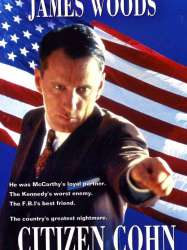
Citizen Cohn (1992)
, 1h51Directed by Frank Pierson
Origin USA
Genres Drama, Biography, Historical
Themes Medical-themed films, Films about viral outbreaks, HIV/AIDS in film
Actors James Woods, Joe Don Baker, Joseph Bologna, Lee Grant, Ed Flanders, Jeffrey Nordling
Roles Self (archive footage) (uncredited)
Rating70%





The film spans Cohn's life from childhood through his initial rise to power as McCarthy's right-hand man in the Senate Permanent Subcommittee on Investigations hearings and his eventual public discrediting a month before his death in 1986 from AIDS. It is told mostly in flashback as Cohn lies dying in a Virginia hospital, hallucinating that his many enemies (from Robert Kennedy to Ethel Rosenberg, a convicted Communist spy he sent to the electric chair) are haunting him. It concerns aspects of Cohn's life such as his closeted homosexuality and the measure of his culpability in the "Red Scare" of the 1950s. While the movie portrays Cohn in a decidedly unsympathetic light, it also depicts episodes in his life, such as the death of his beloved mother, in which he showed a more tender, compassionate side.
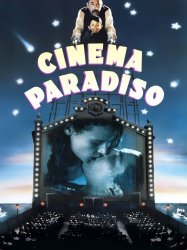
Cinema Paradiso (1988)
, 1h58Directed by Giuseppe Tornatore
Origin Italie
Genres Drama, Romance
Themes L'adolescence, Films about films, Films about children, Medical-themed films, Seafaring films, Transport films, Films about disabilities, La cécité
Actors Philippe Noiret, Salvatore Cascio, Marco Leonardi, Jacques Perrin, Brigitte Fossey, Antonella Attili
Roles Lt. Frederic Henry (archive footage) (uncredited)
Rating84%





In Rome, in the 1980s, famous Italian film director Salvatore Di Vita returns home late one evening, where his girlfriend sleepily tells him that his mother called to say someone named Alfredo has died. Salvatore obviously shies from committed relationships and has not been to his home village of Giancaldo, Sicily in 30 years. As his girlfriend asks him who Alfredo is, Salvatore flashes back to his childhood.
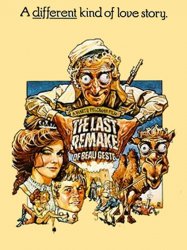 , 1h25
, 1h25Directed by Marty Feldman
Origin USA
Genres Comedy, Action, Adventure
Themes French war films
Actors Marty Feldman, Michael York, Ann-Margret, Avery Schreiber, Peter Ustinov, James Earl Jones
Roles Beau Geste (archive footage)
Rating59%





Spoofing the classic Beau Geste and a number of other desert motion pictures, the film's plotline revolves around the heroic Beau Geste and his brother Digby's misadventures in the French Foreign legion out in the Sahara, and the disappearance of the family sapphire, sought after by their money-hungry stepmother.

Hollywood on Trial (1976)
, 1h45Origin USA
Genres Documentary, Historical
Themes Documentary films about business, Documentary films about the film industry, Documentary films about historical events, Documentary films about cities, Political films
Actors John Huston, Walter Bernstein, Alvah Bessie, Lester Cole, Gary Cooper, Henry Daniell
Roles Himself (archive footage)
Rating72%





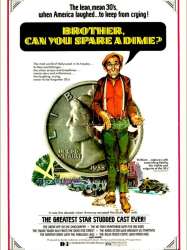 , 1h50
, 1h50Directed by Philippe Mora
Origin United-kingdom
Genres Documentary, Historical
Themes Documentary films about historical events
Actors Walt Disney, Bing Crosby, Marlene Dietrich, Charlie Chaplin, Fred Astaire, James Dunn
Roles Self (archive footage)
Rating70%





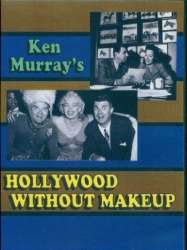
Hollywood Without Make-Up (1963)
Directed by Ken Murray
Origin USA
Genres Documentary
Themes Documentary films about business, Documentary films about the film industry, Documentary films about cities
Actors Kirk Douglas, Ken Murray, Cary Grant, June Allyson, George K. Arthur, Eddie Albert
Roles Self (archive footage)
Rating71%





The film consists of archive footage of famous Hollywood stars, mostly home movies showing the stars as themselves instead of playing a role in front of the camera.
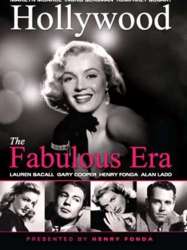
Hollywood: The Fabulous Era (1962)
, 1hDirected by Jack Haley Jr.
Origin USA
Genres Documentary
Themes Documentary films about business, Documentary films about the film industry, Documentary films about cities
Actors Lauren Bacall, Ingrid Bergman, Humphrey Bogart, Gary Cooper, Henry Fonda, Alan Ladd
Roles Himself (archive footage)
Rating69%






The Naked Edge (1961)
, 1h37Directed by Michael Anderson
Origin United-kingdom
Genres Thriller
Actors Gary Cooper, Deborah Kerr, Eric Portman, Diane Cilento, Hermione Gingold, Peter Cushing
Roles George Radcliffe
Rating65%





In the aftermath of a theft and murder, Martha Radcliffe (Kerr) increasingly suspects her husband George Radcliffe (Cooper), whose testimony in court convicted the main suspect, of being the real culprit.

They Came to Cordura (1959)
, 2h3Directed by Robert Rossen
Origin USA
Genres Drama, War, Action, Adventure, Western
Actors Gary Cooper, Rita Hayworth, Van Heflin, Dick York, Tab Hunter, Richard Conte
Roles Major Thomas Thorn
Rating63%





In 1916, as U.S. soldiers chase after Pancho Villa, Army Major Thomas Thorn (Gary Cooper) is assigned to be a battlefield observer and reward heroism. He has been suggested for this duty by a Colonel Rogers (Robert Keith), who is 63 years old and impatiently yearning to be promoted to general before mandatory retirement a few months hence.

The Hanging Tree (1959)
, 1h47Directed by Delmer Daves, Karl Malden
Origin USA
Genres Drama, Western
Actors Gary Cooper, Maria Schell, Karl Malden, George C. Scott, Virginia Gregg, Karl Swenson
Roles Dr. Joseph "Doc" Frail
Rating70%





Joseph Frail—doctor (Gary Cooper), gambler, gunslinger—rides into small town of Skull Creek, Montana, with miners in a gold rush, looking to set up a doctor's office. He passes by the "hanging tree," an old oak with a thick branch over which has been slung a rope with a frayed end, presumably a former noose.

Alias Jesse James (1959)
, 1h32Directed by Norman Z. McLeod
Origin USA
Genres Comedy, Action, Western
Themes Films about families, Jesse James, Gangster films
Actors Bob Hope, Rhonda Fleming, Will Wright, Wendell Corey, Jim Davis, Mary Young
Roles Cowboy
Rating63%





Milford Farnsworth (Hope) is a bumbling insurance agent who unknowingly sells a life insurance policy to the outlaw Jesse James (Wendell Corey). Farnsworth is sent out West to protect the insurance company's investment by "protecting" James.
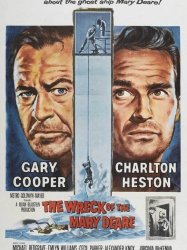
The Wreck of the Mary Deare (1959)
, 1h45Directed by Michael Anderson
Origin USA
Genres Drama, Thriller, Action, Adventure, Crime
Themes Seafaring films, Transport films
Actors Gary Cooper, Charlton Heston, Michael Redgrave, Emlyn Williams, Cecil Parker, Alexander Knox
Roles Gideon Patch
Rating66%





The steamship Mary Deare is found adrift at sea by salvager John Sands (Charlton Heston). Sands boards it hoping to claim it for salvage, but finds the first officer, Gideon Patch (Gary Cooper), still aboard and trying to run the ship on his own. Patch has stayed on the ship in order to prove that it was sabotaged to collect insurance on cargo that had secretly been off-loaded at Rangoon. Patch convinces Sands to help him beach the ship, even though it will void his salvage claim. When they return to London, Patch is brought before a board of inquiry to determine what happened. It soon becomes apparent that the ship owners were planning to wreck the Mary Deare all along and have Patch as the fall guy.
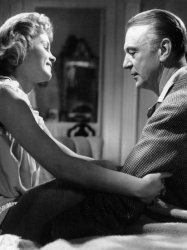
Ten North Frederick (1958)
, 1h42Directed by Philip Dunne
Origin USA
Genres Drama, Romance
Themes Children's films
Actors Gary Cooper, Geraldine Fitzgerald, Diane Varsi, Suzy Parker, Tom Tully, Tom Tully
Roles Joseph B. 'Joe' Chapin
Rating67%





In April 1945, outside the titular address in the fictional town of Gibbsville, Pennsylvania, a radio reporter is describing the funeral of distinguished attorney Joseph Chapin (Gary Cooper). While his shrewish wife Edith (Geraldine Fitzgerald) delivers his eulogy, daughter Ann (Diane Varsi) thinks back to Joe's fiftieth birthday celebration five years earlier.
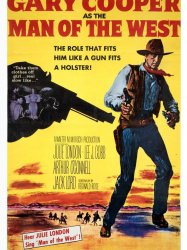
Man of the West (1958)
, 1h40Directed by Anthony Mann
Origin USA
Genres Drama, Action, Romance, Western
Actors Gary Cooper, Julie London, Lee J. Cobb, Arthur O'Connell, Jack Lord, John Dehner
Roles Link Jones
Rating69%





Link Jones (Gary Cooper) rides into Crosscut, Texas to have a bite to eat, then catch a train to Fort Worth, where he intends to use the savings of his community of Good Hope to hire a schoolteacher.
 Connection
Connection




